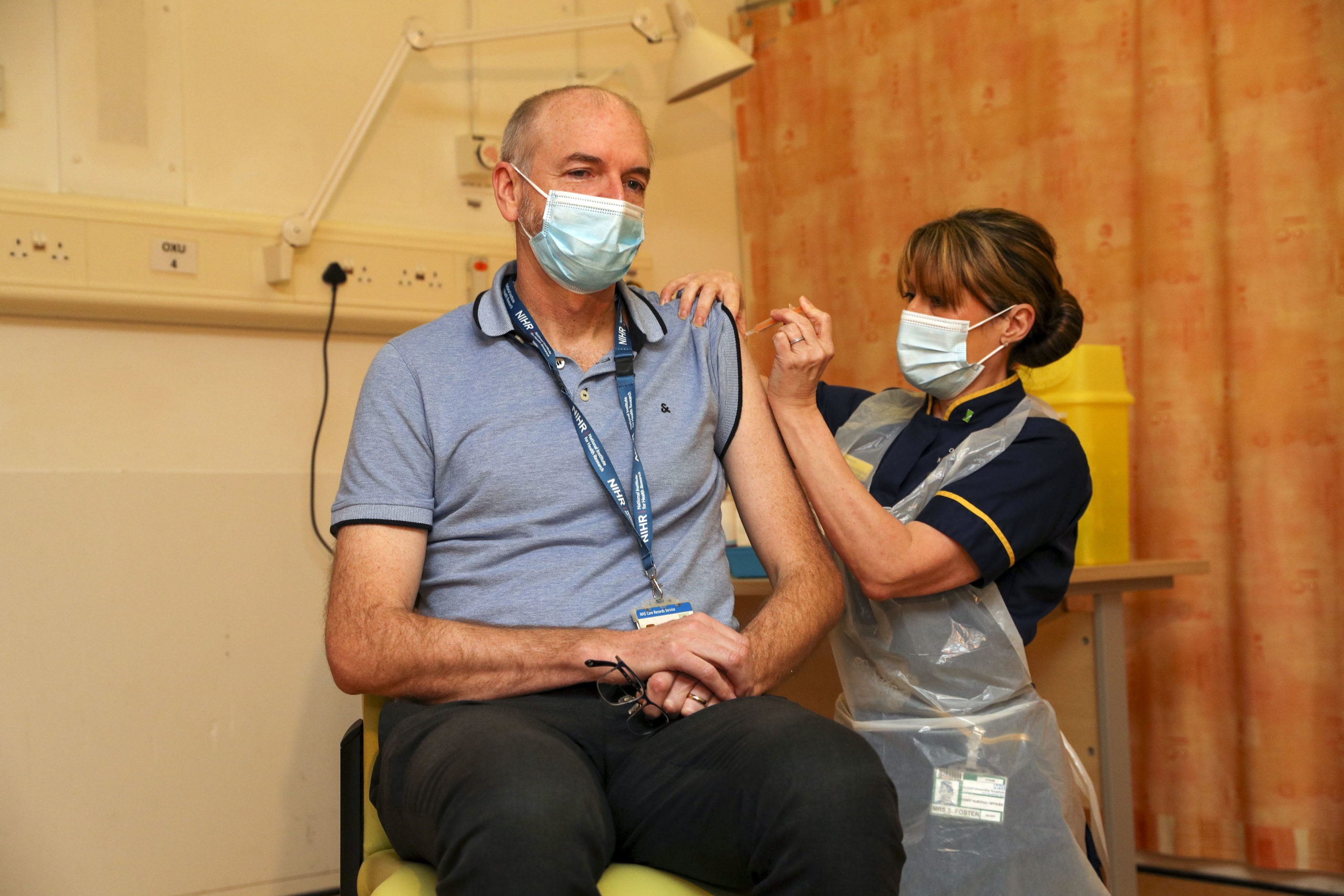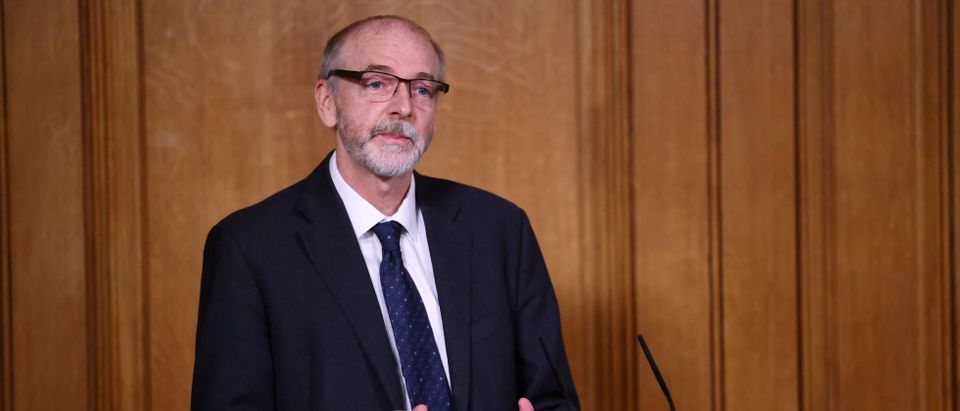Sir Andrew Pollard said “we can’t vaccinate the planet every six months” during an interview Monday with The Telegraph.
Pollard who is a professor and the chairman of the Joint Committee on Vaccination and Immunization (JCVI), said that “at some point, society has to open up,” the Telegraph reported. He also said administering boosters every six months was “not sustainable,” according to the outlet.

Andrew Pollard, Director of the Oxford Vaccine Group, and a professor of pediatric infection and immunity receives the Oxford University/AstraZeneca COVID-19 vaccine from nurse Sam Foster at the Churchill Hospital in Oxford, southwest England on January 4, 2021. (Photo by Steve Parsons / POOL / AFP) (Photo by STEVE PARSONS/POOL/AFP via Getty Images)
Pollard dismissed the need for a fourth shot until there is “more evidence” that one is needed, saying focus should be on the “vulnerable.”
“We know that people have strong antibodies for a few months after their third vaccination, but more data are needed to assess whether, when and how often those who are vulnerable will need additional doses.”
Pollard was one of the creators of the Oxford AstraZeneca COVID-19 vaccine, according to CNN. Cases of the Omicron variant of COVID-19 have surged throughout the U.S. and the world.
A recent study published out of South Africa indicated that people who contract the Omicron strain of the COVID-19 virus are less likely to be hospitalized. South African authorities have also said that their Omicron wave is over and there was no major surge in deaths due to the variant. (RELATED: Fauci Admits Omicron Not As Severe, Says Focus Should Be On Hospitalizations, Not Daily Cases)
The Centers for Disease Control and Prevention (CDC) even admitted it overestimated the spread of Omicron cases by more than 200 percent.
Israel has approved a second booster of the Pfizer and BioNTech COVID-19 vaccine for people over 60 and medical staff.


